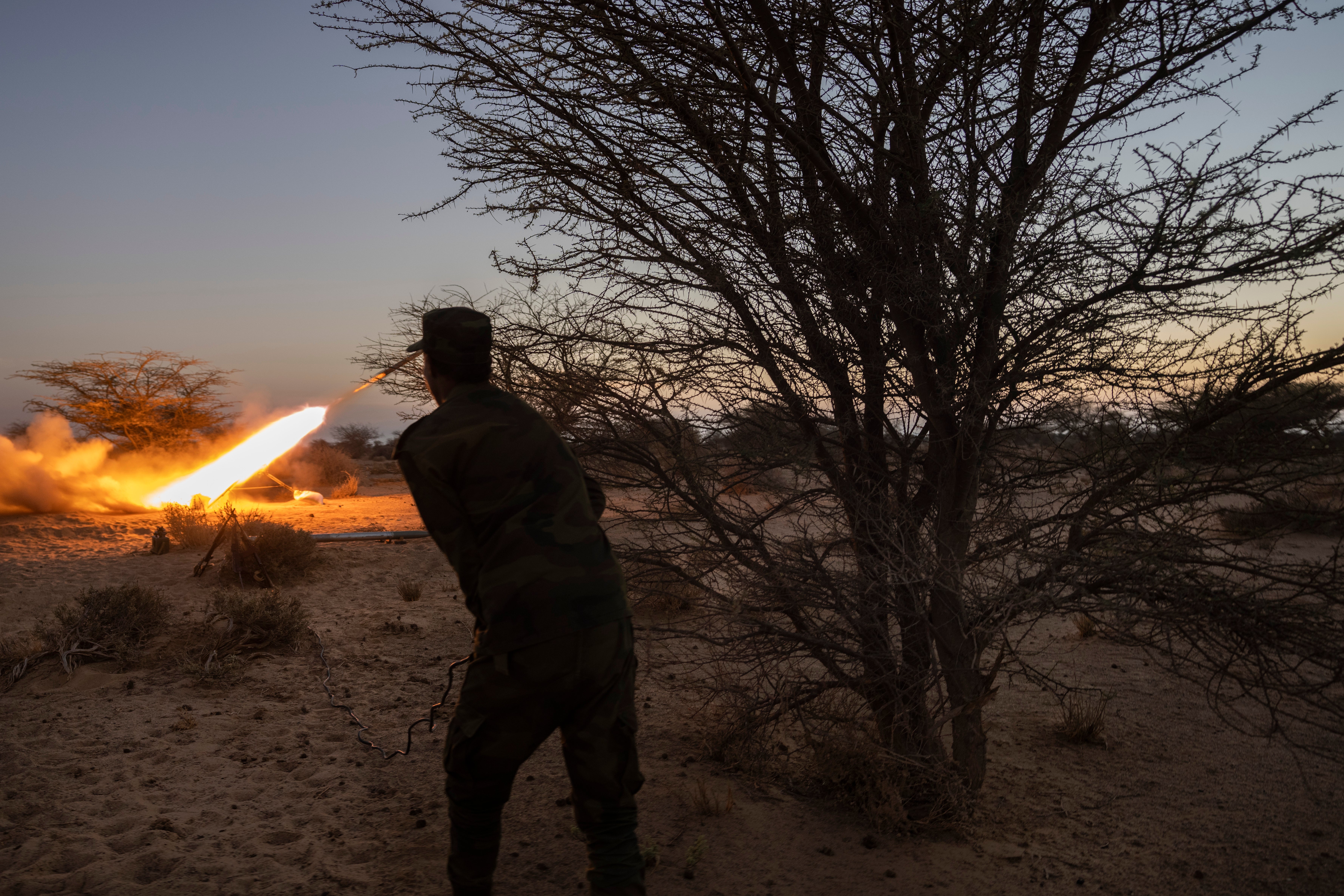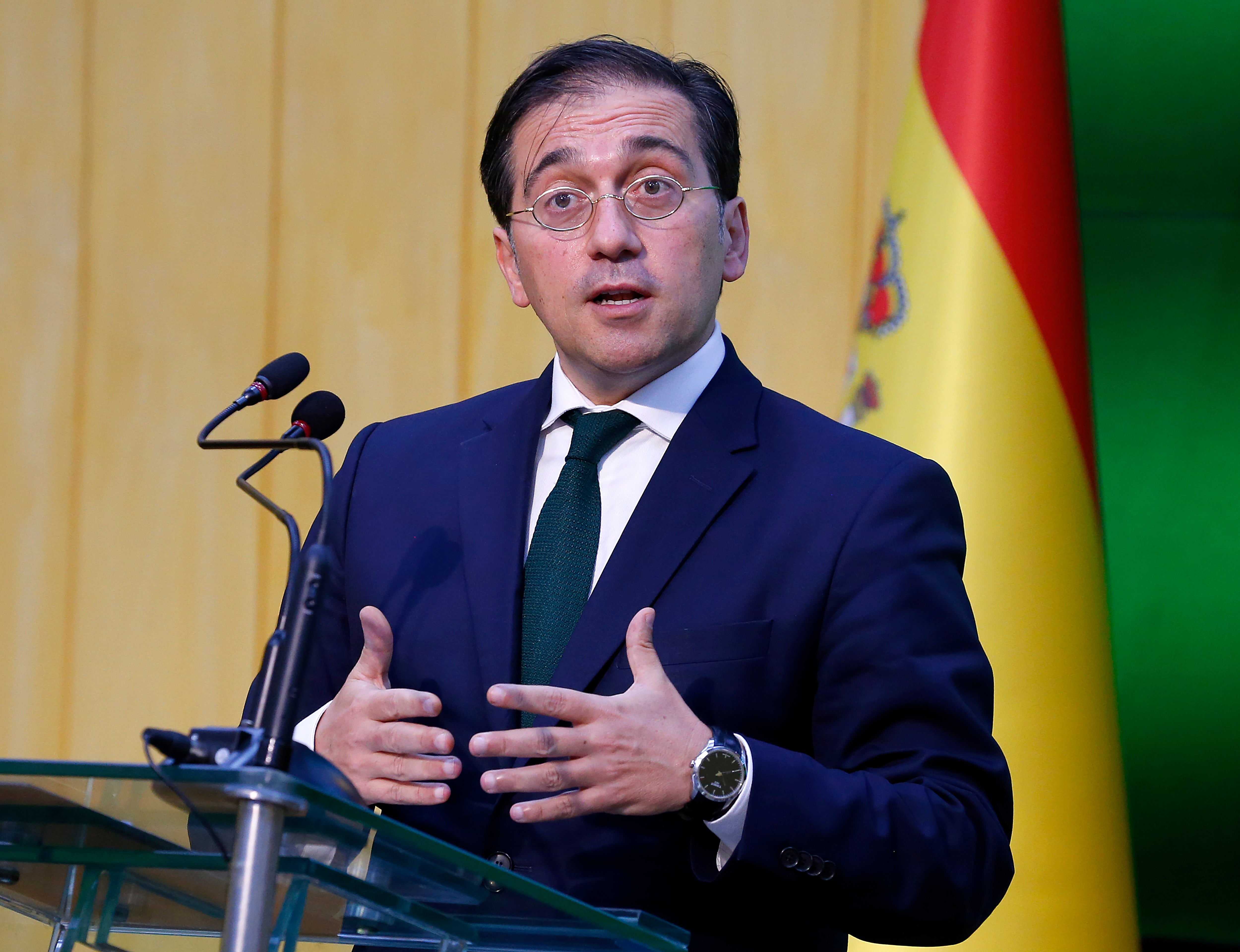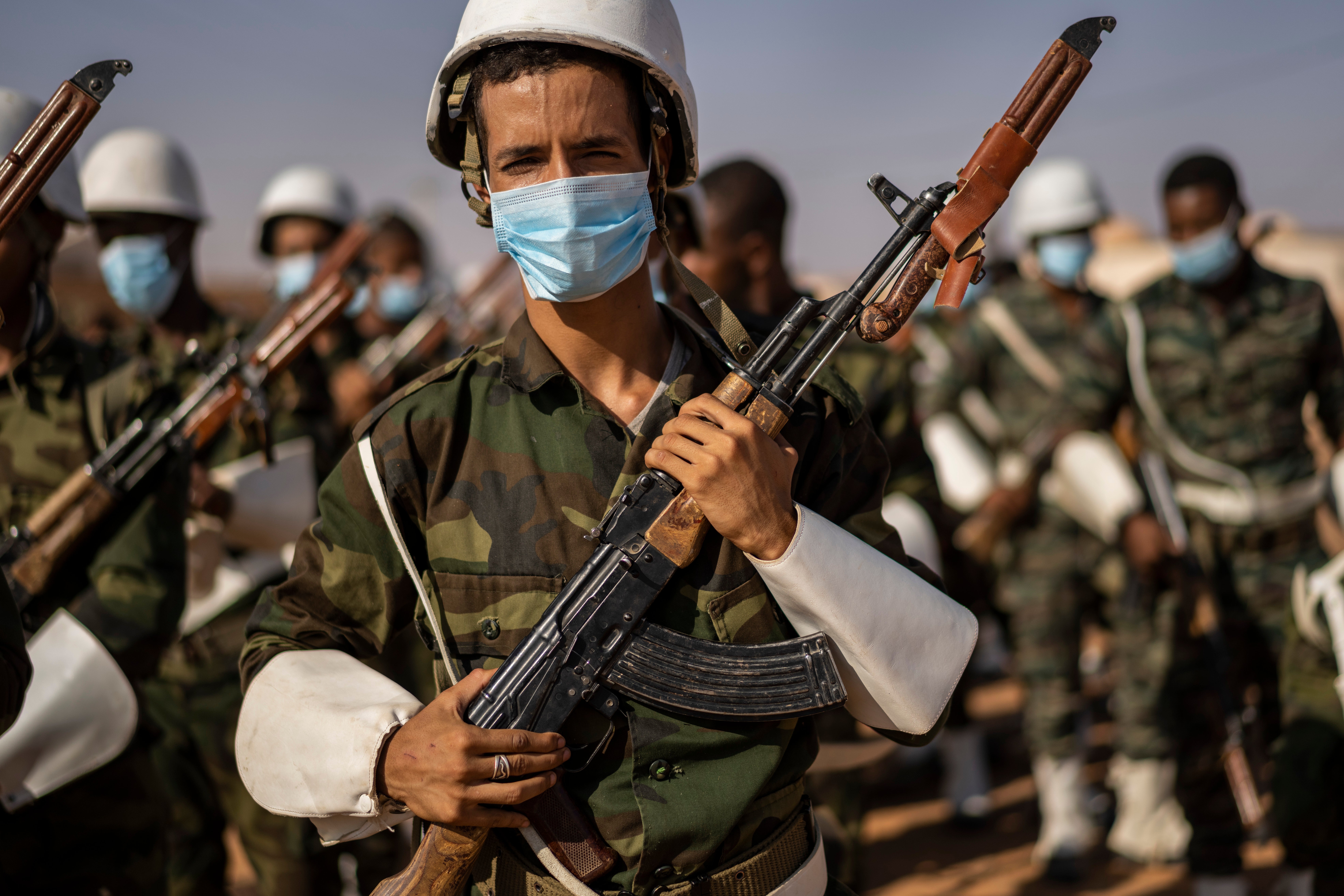Burning the ground? Gas is set to light up Algeria’s diplomatic war with Morocco
Trump dropped a bombshell in the Western Sahara dispute and left. Now the confrontation between Algiers and Rabat is ratcheting up, writes Simon Speakman Cordall

The threat of cutting Algerian gas exports to Morocco is the latest tactic to be deployed in the decades-old cold war between the two north African powers – one that has started to show every sign of warming up.
Recent months have seen the gradual escalation of tensions between the two countries, as they each vie for supremacy across a fractured and disparate region.
Despite sharing a border, Algeria and Morocco have little in common but decades of ill will and resentment.
In December, the administration of US president Donald Trump recognised Morocco’s claim to Western Sahara, an assertion that Algeria disputes. In return, Rabat officially recognised Israel, opening the door to normalisation and the latest round of escalations with its easterly neighbour.
Algeria’s response to the US recognition of Morocco’s claim to Western Sahara wasn’t immediate.
In fact, it held until August, when, citing Morocco’s failure to honour bilateral commitments over the disputed territory, the alleged surveillance of Algeria’s military, and both Rabat and Tel Aviv’s supposed support for the Algerian regional separatist movement, MAK, (Mouvement pour l’autodétermination de la Kabylie), Algeria severed its diplomatic relations with Morocco.
A little less than a month later, tensions escalated further when Algeria closed its airspace to all Moroccan flights, “in view of the continued provocations and hostile practices on the Moroccan side”, as the statement phrased it.
Algeria has been providing gas to Spain and Portugal via its Moroccan pipeline since the mid-1990s. Nevertheless, that contract is due to expire on 31 October. If the Algerian energy minister’s heavy-handed hints are to be believed, that could mean the taps being turned off while Algeria seeks to circumvent its regional rival.
While that would deprive Algiers of sorely needed revenue, the threat has proved enough for Morocco to commence talks with Spain on Monday about possibly reversing the pipeline’s flow, thus avoiding the kind of gas shortages that have become familiar to many elsewhere in Europe and beyond.
However, this isn’t to suggest that Morocco has been entirely passive in responding to Algerian muscle-flexing.
Further to its alleged use of Israeli Pegasus software to spy on Algerian officials, Rabat has adopted a more assertive foreign policy in light of Trump’s move in the Sahara, encouraging other countries to break with the UN line in recognising its claim, leading to an ugly diplomatic confrontation with Germany.

For many observers, there is little surprise in this latest flare-up in tensions between the two states, whose enmity reaches back at least as far as the 1963 Sand war, which saw conflict break out over an ambiguous border line left by the departing colonial powers. The conflict ended in a stalemate, albeit one that benefitted Morocco.
Since then, the two have struggled to find much of a common purpose, despite sharing a region, a religion, and even much of a language. Tensions were exacerbated still further in 1975, when Morocco, citing the popular will, initially annexed the regions of Western Sahara that the US subsequently recognised.
In a move celebrated wildly within Morocco, around 250,000 unarmed civilians walked into the desert to lay claim to the land occupied by the resident Sahrawis. As a result, the Sahrawis fled en masse to Algeria, sparking a refugee crisis that continues forty years later. The US recognition of Moroccan claims to their homeland has understandably angered this group, leading to an escalation in the hit-and-run attacks their self-styled liberation movement, the Polisario Front, has carried out on the Moroccan military stationed within the disputed region.
This is despite Rabat’s alleged use of Israeli drones to survey the region. For analysts such as Zine Labidine Ghebouli, while Algeria’s response to Moroccan claims is sincere, its sincerity springs from a number of potentially competing sources. Primary among these is a deteriorating economy, which failed to adapt after oil and gas prices tanked in 2014.
Conflict with Morocco will consolidate (the president’s) position and place him very positively within the public’s mind
At the time, Algeria had a wealth of foreign reserves to fuel its massive social subsidy system, one of the highest in the region.
Now those reserves are almost gone. Algeria is looking at ways to cut its subsidies without reigniting the kind of mass social unrest that led to the ousting of long-time president Abdelaziz Bouteflika in 2019, which plunged Algeria’s leadership into a crisis of popular legitimacy from which it has yet to recover.
“Look at the results: (current president Abdelmadjid) Tebboune has a real legitimacy problem,” Ghebouli says, referring to the low voter turnout for the president’s initial election and the lacklustre series of votes on reform and government that followed.
“Conflict with Morocco will consolidate his position and place him very positively within the public’s mind,” he says.
“There’s also the army, which, given its nature, has led to many senior generals in senior positions now who can remember the 1963 war,” he notes.
“There are two untouchable areas of Algerian policy,” Ghebouli continues: “foreign and military policy. By confronting Morocco, the leadership gets to use both to send a clear message. It’s saying that it’s still there and it still counts,” he says.

However, while once a source of national pride, Algerian diplomacy, and Algiers’ ability to deploy its foreign policy in a way that carefully served the needs of the centre, has run to fat following years of neglect.
“As I said, at the moment, all aspects of the pouvoir, (the opaque group of military officers, trade unionists and business leaders that surround the presidency) can agree that standing up to Morocco is a positive move,” says Ghebouli, stressing that agreement on that point has its very distinct limits.
“However, if things deteriorate domestically, especially after subsidies are cut, that consensus risks shattering. That’s where the danger lies. Faced with widespread social unrest, it’s not clear what they might do and where this could lead.”
In the last few decades, Algeria has experienced one of the most savage civil wars of modern times. Algeria and Morocco each survived the tumultuous years of the Arab spring and have maintained a fragile coexistence since.
However, with an insecure government in Algiers looking to shore up the foundations of its power, allied to Trump’s recognition of Morocco’s claim to Western Sahara, the landscape has once again shifted. What may come next is written in the sand.






Join our commenting forum
Join thought-provoking conversations, follow other Independent readers and see their replies
Comments